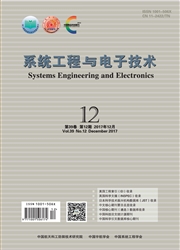

 中文摘要:
中文摘要:
增强低信噪比(signal to noise ratio,SNR)下的语音质量是语音识别需要解决的问题。在众多增强方法中,经验模态分解(empirical mode decomposition,EMD)是目前应用最为广泛的一种方法。针对EMD在对语音进行增强时存在端点效应的问题,研究了极值域均值模式分解(extremum field mean mode decomposition,EMMD)方法。该方法改变了EMD只利用信号的极值点信息的单一做法,充分考虑输入信号所有信息,计算信号极值点间所有数据的均值,可以有效解决EMD中的端点效应问题。因此,提出了基于EMMD的语音增强方法,实验结果表明EMMD方法的引入,消除局部数据中隐含的支流分量,避免了EMD方法的端点效应问题,明显提高了带噪语音的SNR,改善了语音的质量。
 英文摘要:
英文摘要:
Improving the speech quality in low signal to noise ratio(SNR) environment is the key problem in speech recognition.There are many ways to solve this problem,and the empirical mode decomposition(EMD) is a widely applied method.But this method is usually easy to produce endpoint effects,so a further research on the extremum field mean mode decomposition(EMMD) method is made,by means of which the EMD changes the unitary use of extreme value point information and makes full use of the input signal information to calculate the mean value.Through calculating all the input information between extreme points,the endpoint effect is effectively restrained.Consequently a speech enhancement method based on EMMD is proposed.Experiment results show that the EMMD method can eliminate the DC-component implied in local data,restrains the endpoint effect in EMD and improves the SNR and speech quality.
 同期刊论文项目
同期刊论文项目
 同项目期刊论文
同项目期刊论文
 期刊信息
期刊信息
